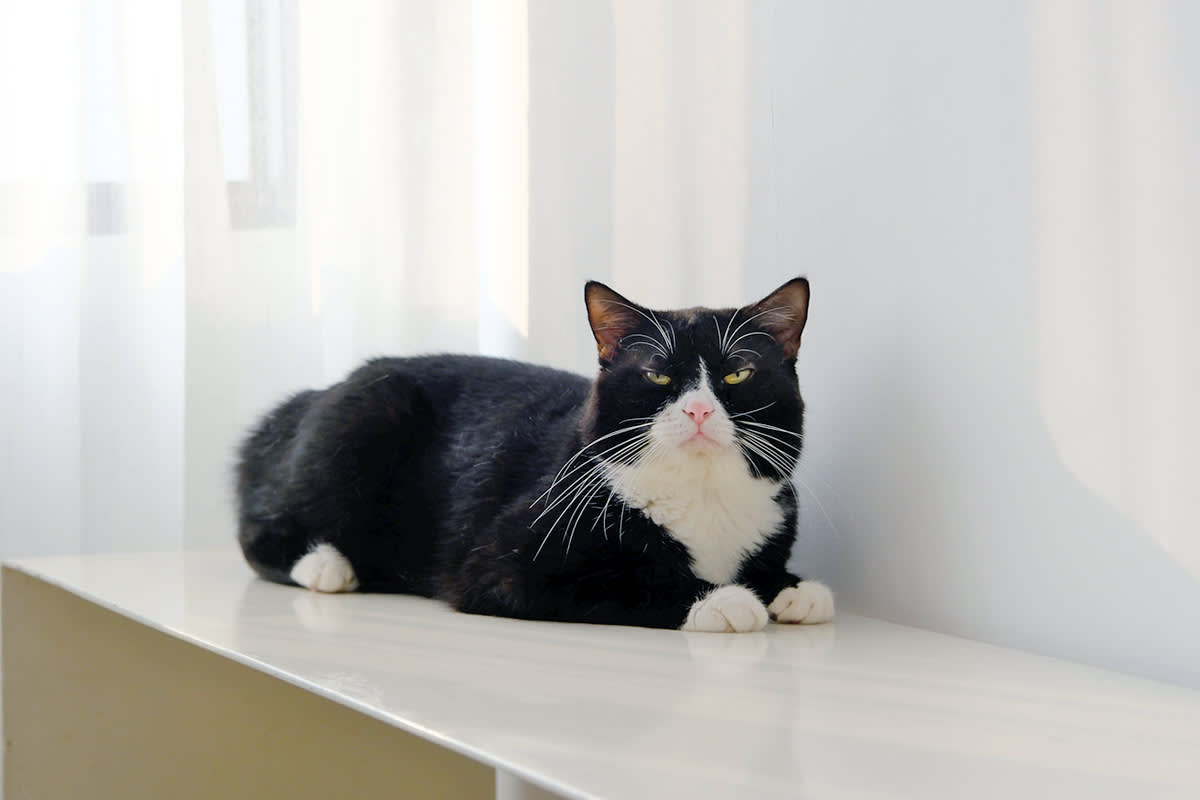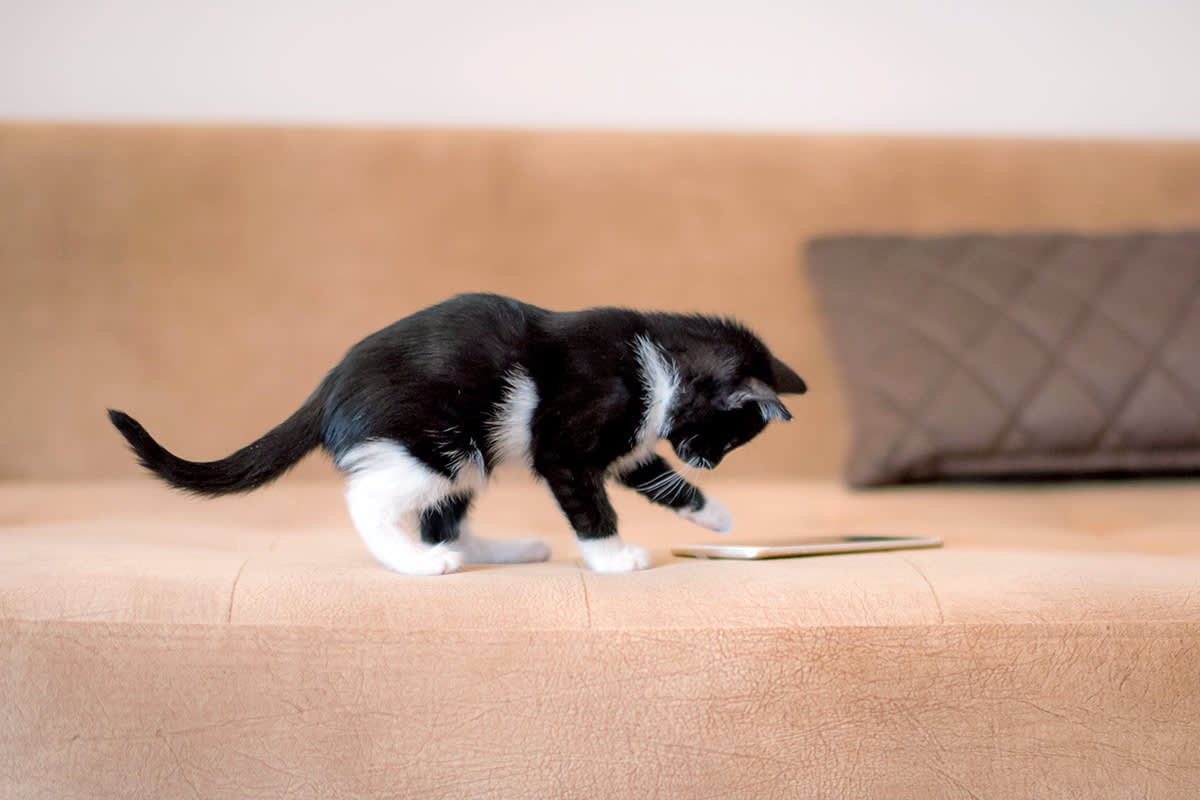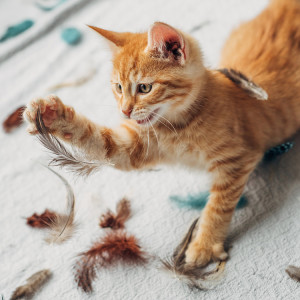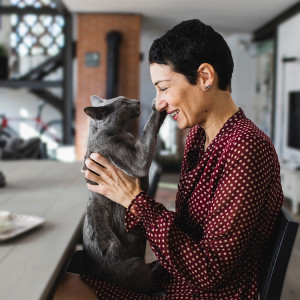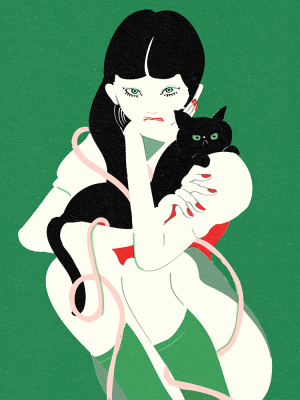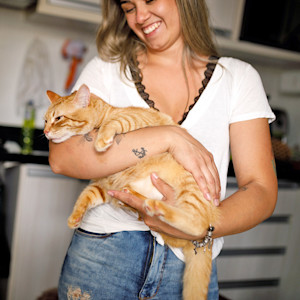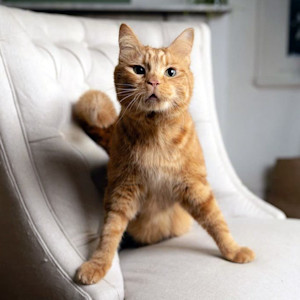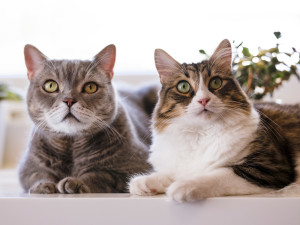Are Tuxedo Cats More Intelligent Than Other Cats—or Just More Dapper?
Find out if the internet-fueled rumor is true.

Share Article
I’ve had two tuxedo cats in my life: Fremont, whom I got as a kitten from a fifth grade classmate, and Yoshi, whom I adopted at two years old from Animal Care Centers of New Yorkopens in new tab (ACC) after I graduated from college. Both these cats were lovely and curious and friendly. Especially Yoshi. If he surpassed Fremont in any way, it’s probably because, as a 20-something cat dad, I was much more attentive than when I was a tween.
In either case, both cats, whose black coats were decorated with charming white markings, were superstars. But were they smarter than the other cats I’ve had in my life? Let’s see. There was Sophie, the streetwise tabby my mom adopted from our porch when I was five. And Pumpkin and Bear, the elderly Nebelungs I took in during the pandemic. Hard to say. Not one of them ever helped with my taxes, and their Latin grammar was absolutely atrocious. Yet there is this idea bopping around online that tuxedos are somehow smarter than their less-formal feline peers. This concept has inspired entire Reddit threadsopens in new tab and Quora musingsopens in new tab, earning its status as internet lore that may or may not be true.
My gut tells me that this — like the idea that orange cats all share one collective wacky brain cell — is most likely just fanciful BS. But let’s get into it.
Are tuxedo cats smarter than other cats?
Right out of the gate, Stephen Quandt, a certified feline training and behavior expert says that, no, your little tuxedo guy or gal is not smarter than cats whose coats don’t feature the same black-and-white pattern. “I suspect people find it comforting to think that they can determine a cat’s intelligence based on an external factor like coloration,” Quandt says. “But that’s a myth. It’s not true. And any stories about tuxedo cats being smarter, even if true [of that particular cat], are only anecdotal; they are not proof of anything.”

He continues: “Everyone wants a great cat, so they hold onto prejudices they think will up their chances. The idea that they’ve cracked the code is very comforting. Except that they haven’t. And when you allow your choices to be guided by prejudicial stereotypes, you actually end up missing out on what could be the perfect cat for you.”
Of course, the feline world is full of ridiculous stereotypes, like the idea that female cats are not as affectionateopens in new tab as male ones or that orange cats are extra rambunctiousopens in new tab. These ideas are then reinforced by carefully edited videos that circulate online. And even if the creators of these videos have good (or, at least, innocuous) intentions, these baseless ideas, like all easily digestible misinformation and fake news, have a way of catching on. Then, people assign a value-judgment to them: Higher intelligence is labeled as “better,” as is being more affectionate and less hyperactive.
Where did this idea come from?
“Honestly, I’d never even heard about this until you emailed me,” Quandt tells me.
I’d seen a video about it on TikTokopens in new tab, and I didn’t realize the concept was truly catching on until my editor asked me if I’d be interested in writing this story. I can’t say exactly where the idea originated, though I do have some theories. For instance, someone online likely claimed that tuxedo cats were smarter than those with other patterns. Then, the internet ecosystem did its thing, with help from the algorithm. Suddenly, people were talking about this idea almost as if it were fact.
Look, there is this April 2024 academic thesisopens in new tab from a student at Lincoln Memorial University who claims to have found a connection between cat coloration and behavior. But behavior and intelligence are not the same thing. And this student’s thesis is flawed (or, at the very least, limited in its usefulness) because it depended on people’s reports about the cats in their lives.
And maybe your cat is on the spicier side of the personality spectrum because you aren’t playing with them enough. Maybe they have aggressive tendencies because they were abused. There are so many reasons beyond coloration that actually make a lot more sense.
What does “smart” even mean when it comes to cats?
Even if I were able to find a study of thousands of cats that concluded coloration was a factor in a cat’s intellect, coat color or pattern alone can’t tell me about an individual kitty’s ability. Every cat is different, and even if there were some minor causation or correlation between intelligence and color, you could still find a smart, non-bonkers orange kitty or a goofy, simple-minded tuxedo.
Also: What do we even mean when we say that one cat is smarter than another? Easier to train? More curious? More playful?
And if you were to ask 100 people what makes a feline intelligent, you’d probably get 100 different answers. Are they brainy because they know to scratch the scratching post instead of the couch? Is it because they use the litter box instead of pooping in the tub? Or is it because they wait until a respectable time of day to start bugging you for dinner? All these things might make a kitty easier to cohabitate with, but they don’t necessarily make them more intelligent. An “intelligent” cat can still refuse to use the litter box. And a “stupid” one can scratch their scratching post. Linking these behaviors to intelligence actually says more about us than it does about them.
What coloration actually says about cats
So, now that we’ve got the debunking portion out of the way, let’s talk about what those patterns on cats’ coats. “Coloration is not breed. It’s merely the result of genes located on the X chromosome — either red/orange or black,” Quandt says. All other colors/shades are merely mutations.
Beyond that, well, genetics are really complicated, and the point is that the gene for color is just one of about 20,000 genesopens in new tab present in domestic cats. True, a single gene can have a tremendous impact on an organism beyond its usual purpose, especially if mutated, but not this one. Its impact is purely aesthetic.
It’s also worth noting that the color of a cat’s fur can be pretty close to the color of their skin underneath. Shave a black cat, and you’ll likely find darker skin under the fur. Shave a tabby or a white cat, and you’ll probably find more pale skin. To be clear, I’m not suggesting you go shave your pets. They would almost certainly not appreciate that. But you can probably part their fur and see the shade of the skin underneath. And skin-color difference has as much impact on feline intelligence as it does human intelligence, which is to say absolutely none at all. Full stop.
Why your cat’s coat pattern isn’t what you should focus on
Given that I only recently encountered this idea of tuxedo super-smarts, I wonder if maybe it arose as a response to the slightly less-recent idea that orange cats are all sort of wild derps. It could be tempting to see these two colorations as binary and, therefore, opposite. And, this line of thinking suggests, if orange cats are sort of dumb, then black ones must be smart.
Or maybe, on some level, whoever originated this idea conflated the definition of smart that means well-dressed — neat, stylish, formal — with the kind of smart that means intelligent. Of course, tuxedo cats look quite smart (as in dapper) in their little black-and-white fur suits. Given our Western fixation on suits and grooming as markers of status and authority in humans, it’s easy to imagine those same biases creeping into our thinking about cats. After all, that would make sense, considering how often we love to anthropomorphize them.
At the end of the day, the differences in feline intelligence, even across many breeds, are not that significant, and, once again, coloration does not equal breed. “Cats are not really bred for intelligence,” Quandt adds. “Dogs have been bred to do specific jobs [and their ability to do those jobs well is often called intelligence], but cats are mostly bred for aesthetics and certain personality traits.”
This is not to say that one cat can’t be smarter than another (whatever smart means in this context). But within any seemingly homogeneous group — whether based on gender, coloration, or breed — there are bound to be those with higher intelligence than others.
What really matters is how sharp you are when it comes to your cat. Can you find the right skills to communicate with them effectively? Can you recognize the patterns in your own behavior that are reinforcing theirs? Do you love them no matter what? Of course you can. You wouldn’t have read this far if you couldn’t. Call your tuxedo kitty smart if you want, just as long as you know they way they look has nothing to do with it.

Charles Manning
Charles Manning is an actor and writer based in New York City. In his free time he likes to cook, go swimming at the public pool, volunteer at the LGBTQ senior center, and foster senior and special-needs cats. His work has previously appeared in Cosmopolitan, Elle, Marie Claire, Harper’s Bazaar, Seventeen, and Nylon.
Related articles
![A cute orange tabby kitten playing with feathers.]()
Is Orange Cat Behavior Real? The Truth Behind the TikTok Trend
Your TikTok algorithm would like you to think so, but the experts weigh in.
![Short haired woman holding a gray cat that's playfully pawing at her nose]()
Does Your Cat’s Fur Pattern Determine Their Personality?
It’s a little more complicated than that.
![a woman with black hair, green eyes, and red nails hugs a black cat]()
Black Cats: Good Luck Charms or Bad Omens?
This Halloween season, let’s dispel some silly superstitions that haunt these kitties.
![Woman holding her orange cat at home.]()
Scientists Finally Discovered the Gene That Makes Cats Orange
Ginger, calico, and tortoiseshell cats have been a mystery for 60 years.
![Phineas the cat, who has cerebellar hypoplasia, sitting on a chair at home.]()
“Wobbly Cat Syndrome” Is All Over the Internet—But What Are These Cats Really Like?
The pet parents of Phineas, a beloved social media star, tell us all about living with a cat with cerebellar hypoplasia.
![Male and female cat lying side by side.]()
How to Spot the Difference Between Male and Female Cats
There’s more to it than what you learned in health class.

